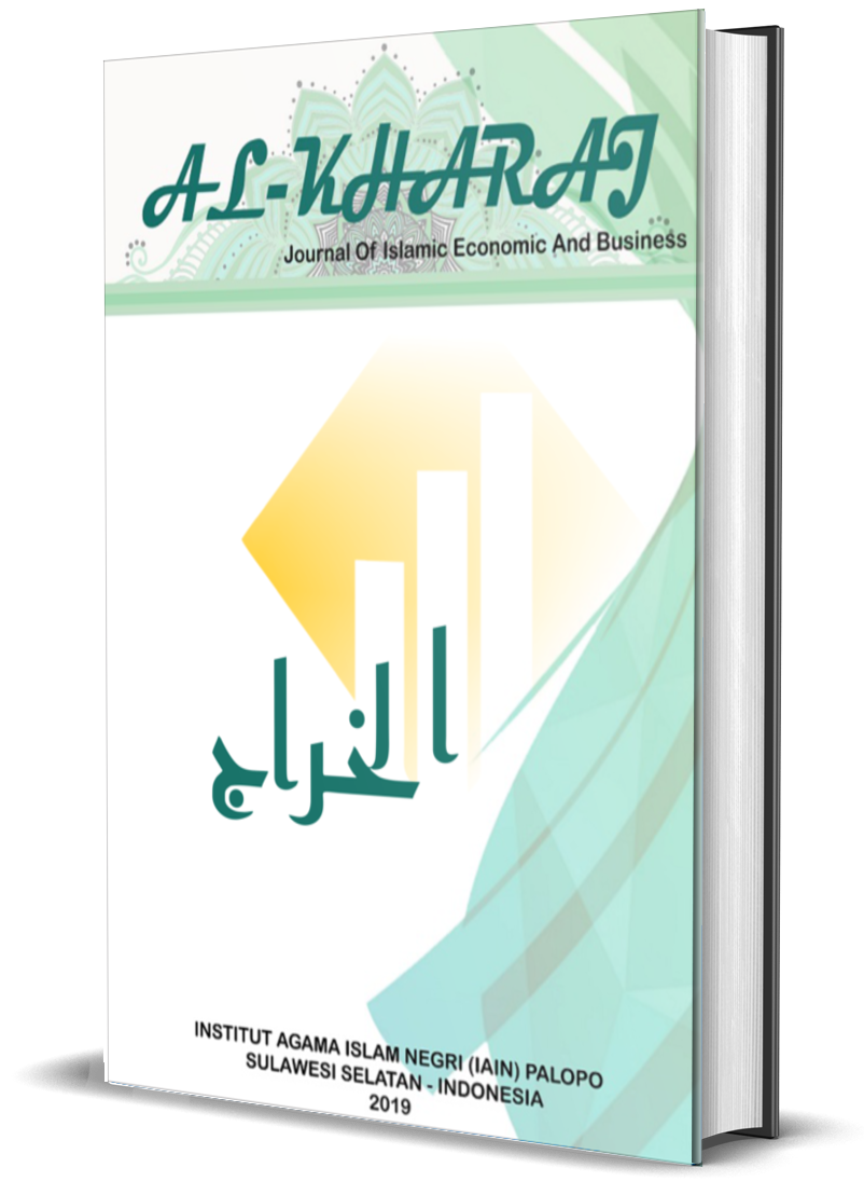Behavioral Factors Influencing Peer-to-Peer Lending Usage: A Systematic Literature Review from the Perspective of Indonesian Borrowers' Needs
DOI:
https://doi.org/10.24256/kharaj.v7i3.7635Keywords:
peer-to-peer, lending, Indonesia, needAbstract
This systematic literature review (SLR) investigates behavioral factors affecting peer-to-peer (P2P) lending adoption from Indonesian borrowers' financial needs viewpoint. Utilizing a descriptive qualitative approach with PRISMA guidelines, literature was retrieved through Publish or Perish with keywords "peer-to-peer," "lending," and "Indonesia" spanning 2020–2025, resulting in 169 articles narrowed to 42 via Rayyan screening based on criteria like peer-review, language, and accessibility. The inductive analysis of variables including usefulness, risk, and trust across studies on Java and rural UMKM borrowers reveals that perceived usefulness and ease of use facilitate efficient funding during crises like COVID-19. Trust reduces risks in syariah-compliant platforms, and social influence accelerates rural uptake, though persistent defaults highlight regulatory gaps. Implications emphasize strengthened OJK supervision for secure platforms to advance sustainable inclusion, countering overly positive economic models and proposing enhancements such as AI ethics integration. Future research should involve empirical longitudinal studies across ASEAN using mixed-methods to confirm factors and assess cross-cultural impacts.
References
Andriani, W. (2022). Penggunaan Metode Sistematik Literatur Review dalam Penelitian Ilmu Sosiologi. Jurnal PTK Dan Pendidikan, 7(2). https://doi.org/10.18592/ptk.v7i2.5632
Anresnani, D. (2018). Modelling Integration of System Dinamics and Game Theory for of Financial Technology Peer to Peer Lending Industry. Matec Web of Conferences, 204. https://doi.org/10.1051/matecconf/201820407006
Edward, M. Y. (2023). Success factors for peer-to-peer lending for SMEs: Evidence from Indonesia. Investment Management and Financial Innovations, 20(2), 16–25. https://doi.org/10.21511/imfi.20(2).2023.02
Eprianti, N. (2020). EFFECTIVENESS FINANCING THROUGH PEER TO PEER FINANCIAL TECHNOLOGY AT SMMB (SMALL AND MEDIUM MICRO BUSINESS) IN INDONESIA. Hamdard Islamicus, 43, 850–861. https://doi.org/10.57144/hi.v43iSpecialIssue.230
Isaputra, S. A. (2023). P2P lending: Moderation of desirability of control on risk-taking decisions of Indonesian borrowers. Humanities and Social Sciences Communications, 10(1). https://doi.org/10.1057/s41599-023-01785-w
Kliestik, T., Dragomir, R., Băluță, A. V., Grecu, I., Durana, P., Karabolevski, O. L., Kral, P., Balica, R., Suler, P., Bușu, O. V., Bugaj, M., Voinea, D. V., Vrbka, J., Cocoșatu, M., Grupac, M., Pera, A., & Gajdosikova, D. (2024). Enterprise generative artificial intelligence technologies, internet of things and blockchain-based fintech management, and digital twin industrial metaverse in the cognitive algorithmic economy. Oeconomia Copernicana, 15(4), 1183–1221. https://doi.org/10.24136/oc.3109
Kurniasari, F. (2021). Implementation of Productivity Apps to Increase Financial Inclusion in Peer-To-Peer Lending Platform. Eurasian Studies in Business and Economics, 16(1), 107–115. https://doi.org/10.1007/978-3-030-63149-9_7
Mudjahidin. (2021). Conceptual model of use behavior for peer-to-peer lending in Indonesia. Procedia Computer Science, 197, 215–222. https://doi.org/10.1016/j.procs.2021.12.134
Putri, V. A. (2024). How Does Fintech Lending Affect Islamic Local Banks’ Efficiency During COVID-19 Pandemic in Indonesia? International Journal of Economics and Management, 18(1), 127–143. https://doi.org/10.47836/ijeam.18.1.09
Rusadi, F. A. R. P. (2020). Fintech Peer to Peer Lending as a Financing Alternative for the Development MSMEs in Indonesia. Legality Jurnal Ilmiah Hukum, 28(2), 232–244. https://doi.org/10.22219/ljih.v28i2.12865
Salim, D. F. (2025). Gender-inclusive fintech and economic growth: The case of P2P lending in Indonesia. Edelweiss Applied Science and Technology, 9(5), 424–435. https://doi.org/10.55214/25768484.v9i5.6885
Supriyadi, A. P. (2022). AN ISLAMIC SPIRIT FOR BUSINESS ETHICS AND LEGAL FRAMEWORK OF FINTECH PEER TO PEER LENDING: Why Does Indonesia Need It? Jurisdictie Jurnal Hukum Dan Syariah, 13(2), 294–321. https://doi.org/10.18860/j.v13i2.17876
Suryanto, S. (2020). FINTECH AS A CATALYST FOR GROWTH OF MICRO, SMALL AND MEDIUM ENTERPRISES IN INDONESIA. Academy of Strategic Management Journal, 19(5), 1–12. https://www.scopus.com/inward/record.uri?partnerID=HzOxMe3b&scp=85098198612&origin=inward
Suryono, R. R. (2019). Peer to peer (P2P) lending problems and potential solutions: A systematic literature review. Procedia Computer Science, 161, 204–214. https://doi.org/10.1016/j.procs.2019.11.116
Yunus, U. (2019). A Comparison Peer to Peer Lending Platforms in Singapore and Indonesia. Journal of Physics Conference Series, 1235(1). https://doi.org/10.1088/1742-6596/1235/1/012008
Downloads
Published
How to Cite
Issue
Section
Citation Check
License
Copyright (c) 2025 Mazaya Febriana

This work is licensed under a Creative Commons Attribution-ShareAlike 4.0 International License.
Authors retain copyright and grant the journal right of first publication with the work simultaneously licensed under a Creative Commons Attribution-ShareAlike 4.0 International License. In line with the license, authors are allowed to share and adapt the material. In addition, the material must be given appropriate credit, provided with a link to the license, and indicated if changes were made. If authors remix, transform or build upon the material, authors must distribute their contributions under the same license as the original.









